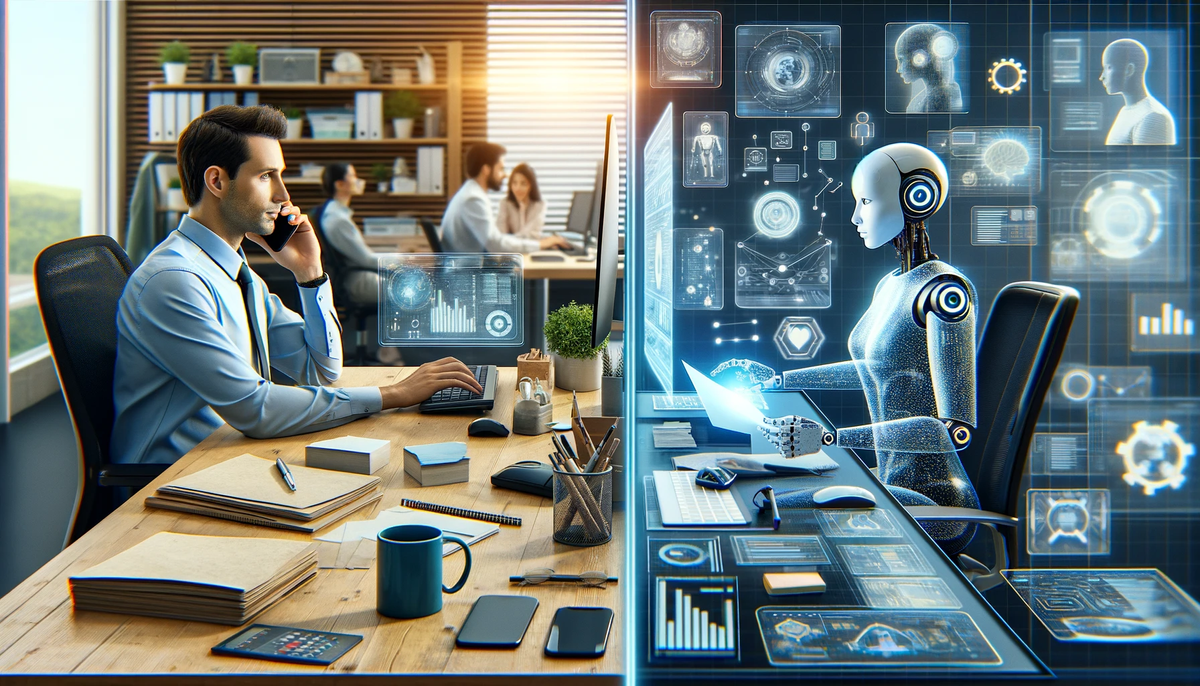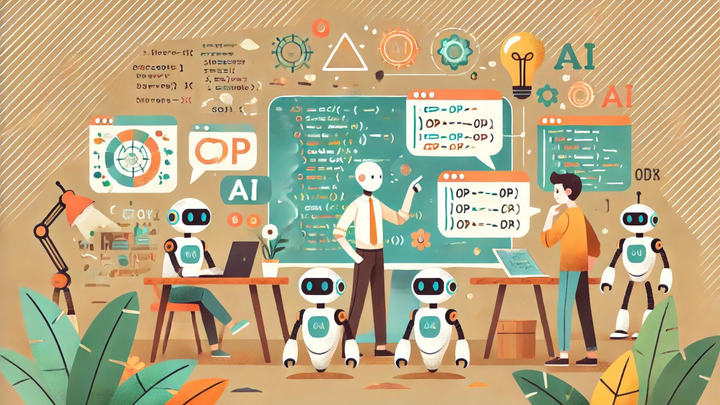How Does The Irreplaceable Human Touch Compare To AI Efficiency?
AI enhances business efficiency but can't replace human creativity, emotional intelligence, or cultural sensitivity. Humans with AI outperform those without.

In today's world, there is abundant hope (and hype) regarding the impact of artificial intelligence in business and its potential to revolutionize future productivity and economic growth. Just as the internet has significantly reduced the cost of sharing information, AI will lower the cost of cognition.
However, before we replace our human sales teams with a robot-run utopia, we must consider a crucial question:
Can AI truly replace human employees? The answer, like most things in life, is complex: "it depends."
Creatives Embrace AI but Value Human Touch for Final Outcomes
Even the mere mention of artificial intelligence in business can elicit a visceral response from creatives in 2023. More than 80% of creatives who responded to the survey have already adopted AI into their working practices. While AI is seen as helpful for tasks like idea generation, most believe human input is still essential for the final outcome. Innovation remains critical to success, and AI needs a significant upgrade in its creative capabilities to bridge this gap.
AI can process data and generate insights but lacks the creative spark that drives human ingenuity. The ability to think outside the box, generate novel ideas, and adapt to new situations is predominantly human.
While AI can provide data-driven examples for a marketing campaign, it is the human touch that crafts a compelling story, evokes emotions, and creates a connection with the audience.
The Human Touch in Interaction
Informal verbal interaction
This is the core matrix of human social life, with systems in place for taking turns and determining who speaks and when. AI, however, often appears canned and robotic, lacking what makes human interaction rich and engaging. Emotional mimicry in AI, like GPT-4, is not the same as humans' nuanced and responsive emotional intelligence. This human touch is crucial in various contexts, especially in creative industries.
Cultural Sensitivity
Humans are deeply influenced by their cultural backgrounds, shaping their perspectives and behaviors. Cultural sensitivity in global teams is essential for effective communication and collaboration, which is not an AI agent’s strongest suit. Forbes Advisor India reports that up to 50% of global business deals fall through due to cultural misunderstandings. And according to a study by Accenture more than 70% of companies prioritize AI. The use of AI might just drive these numbers up. The lack of cultural sensitivity in global teams can be a significant barrier to successful business operations.
The Ethical and Strategic Gaps
AI agents operate based on the data they are trained on, which may not always account for ethical considerations. While it excels at following pre-programmed rules and completing specific tasks, it cannot think strategically and adapt its approach based on unforeseen circumstances. The importance of ethical considerations in AI development cannot be overstated, as these ensure that AI applications are aligned with human values and societal norms.
AI ethics are vital because AI technology is designed to enhance or replace human intelligence. However, when technology aims to emulate human life, it can also incorporate the same biases and issues that affect human judgment.
Most AI LLMs require a prompt, with parameters described thoroughly (and often many attempts to be made). Cognitive science (the science of human and machine thinking) describes problem solving as a cycle. AI can execute solutions to individual phases of the cycle but struggles to transition from one phase to another, essentially relying on humans. Cognitive science helps us understand the limitations and potential of AI, guiding its integration into various fields.
AI agents can analyze data and identify patterns, but they often struggle to grasp the broader context of a situation. Conversely, a salesperson needs to understand not just the words being spoken but also the body language, tone of voice, and overall environment to make informed decisions. The human touch in sales and customer service is irreplaceable, ensuring personalized and empathetic interactions.
The human touch will always be irreplaceable. Simply put, AI can't replace humans, but humans with AI can replace those without.




Comments ()